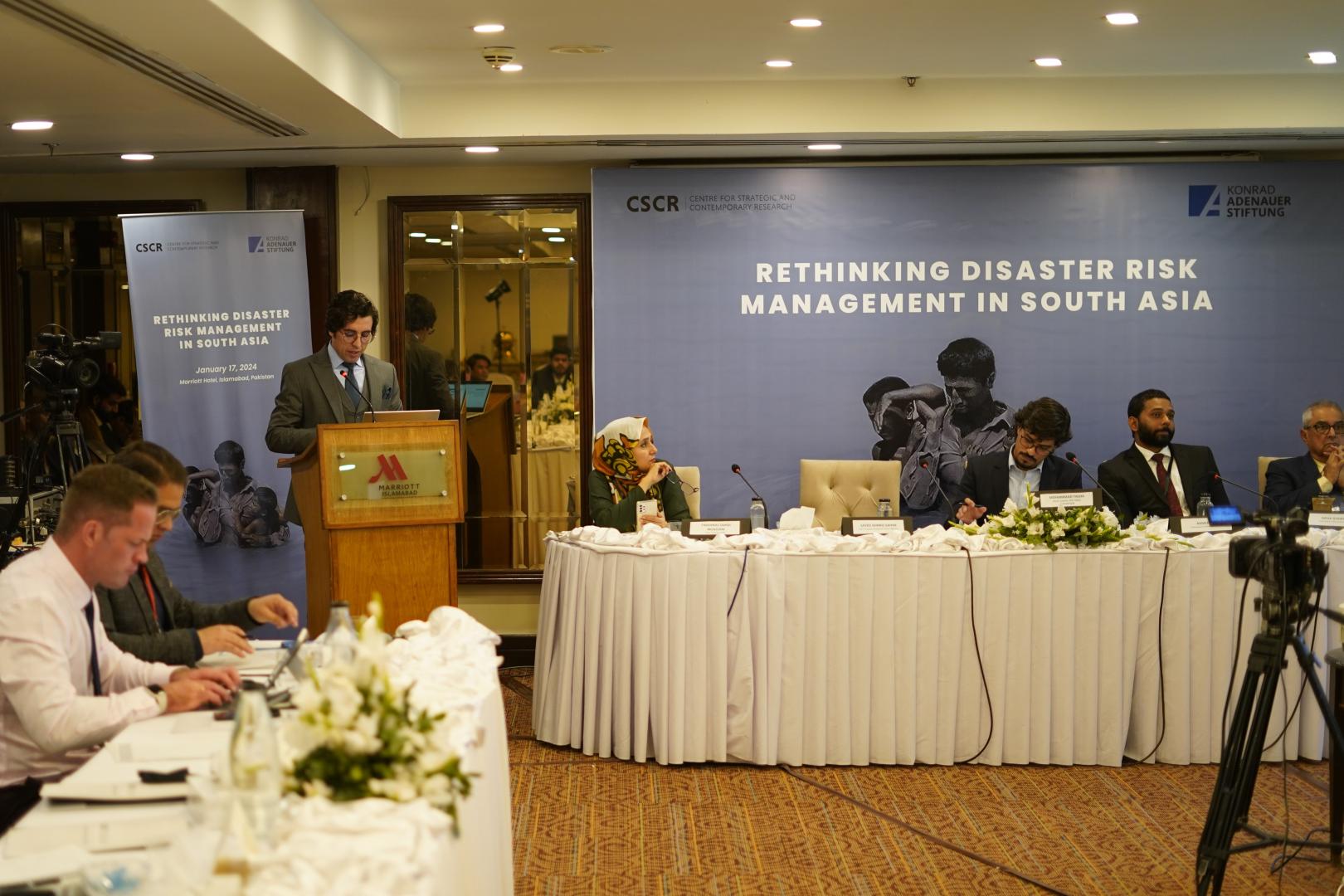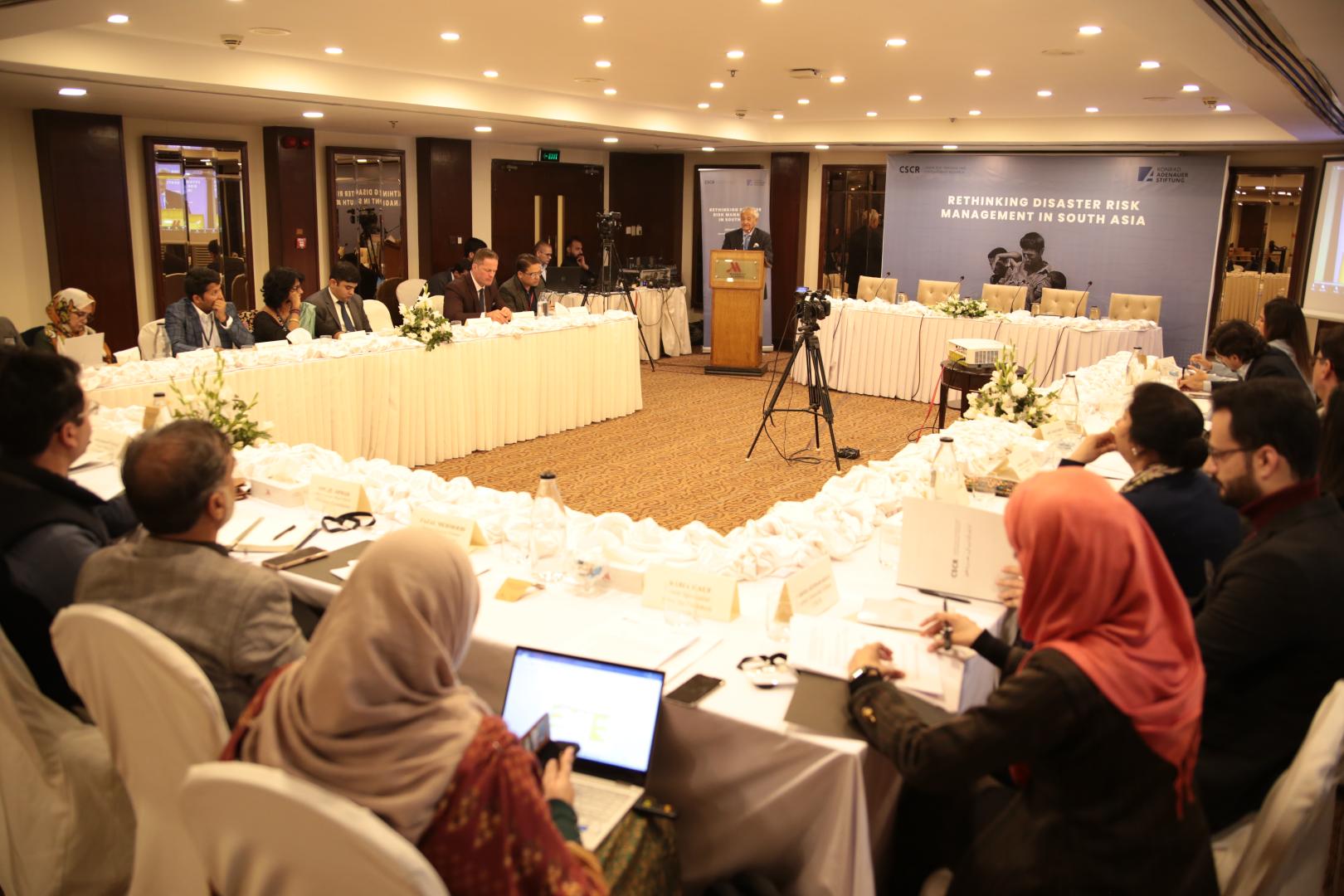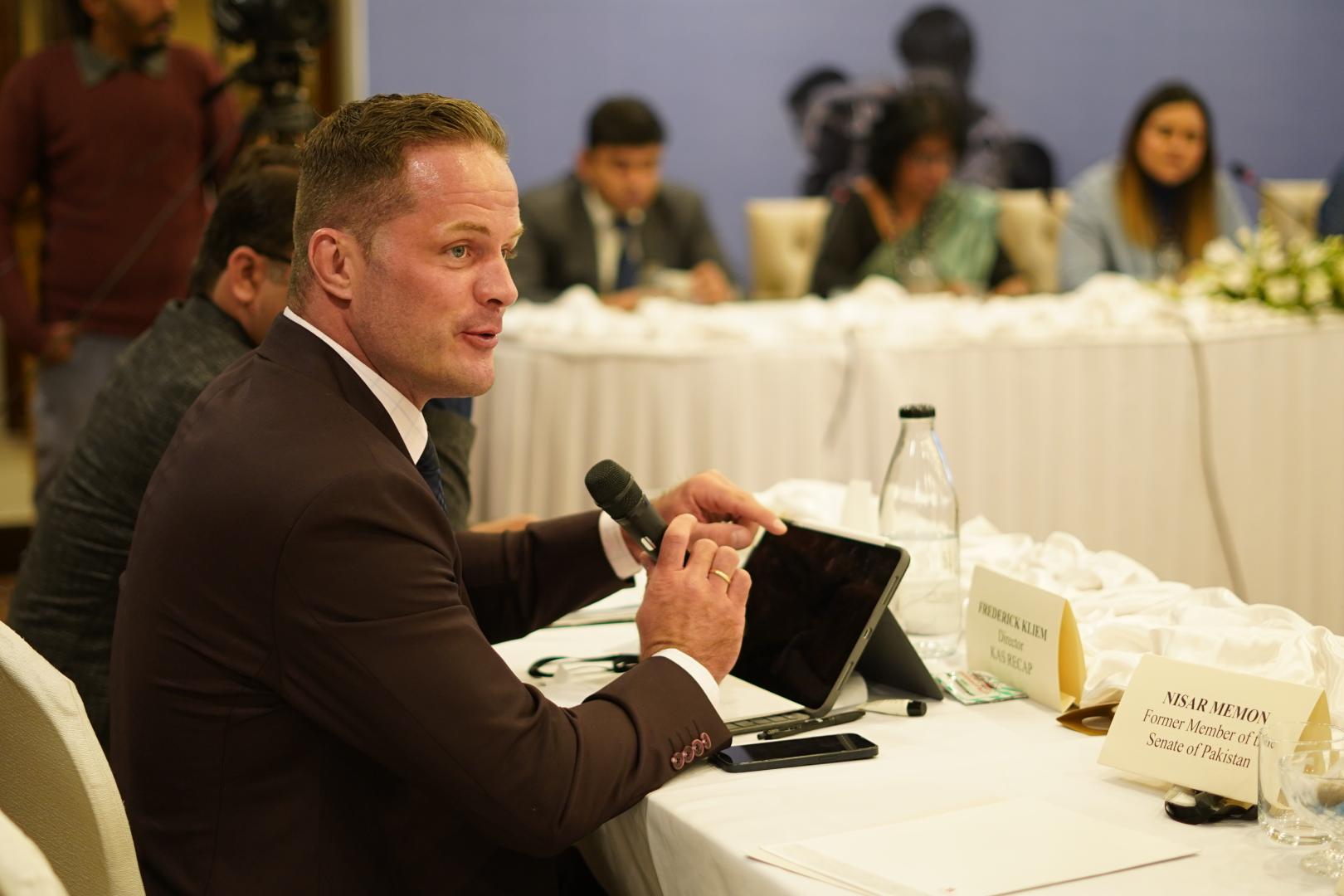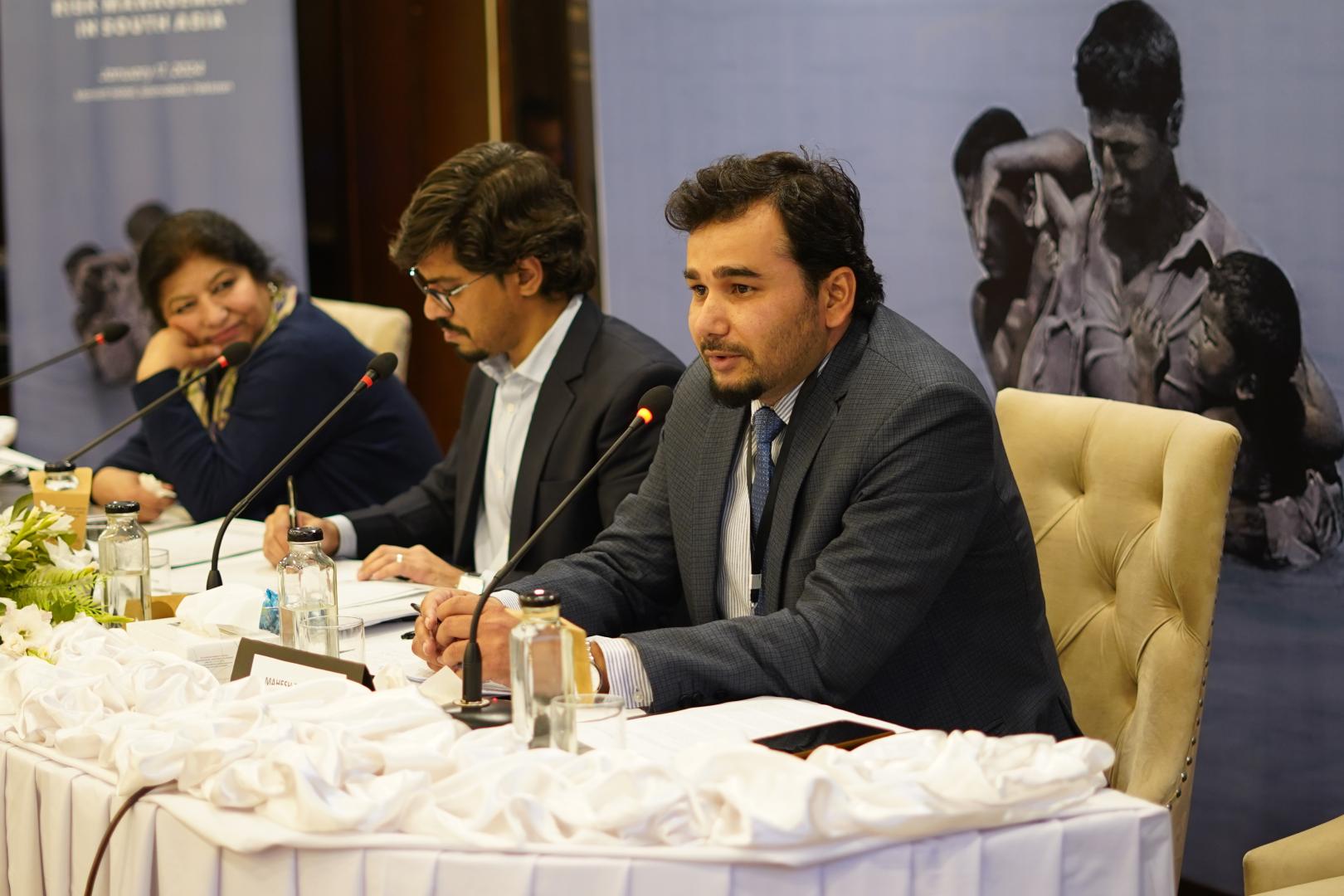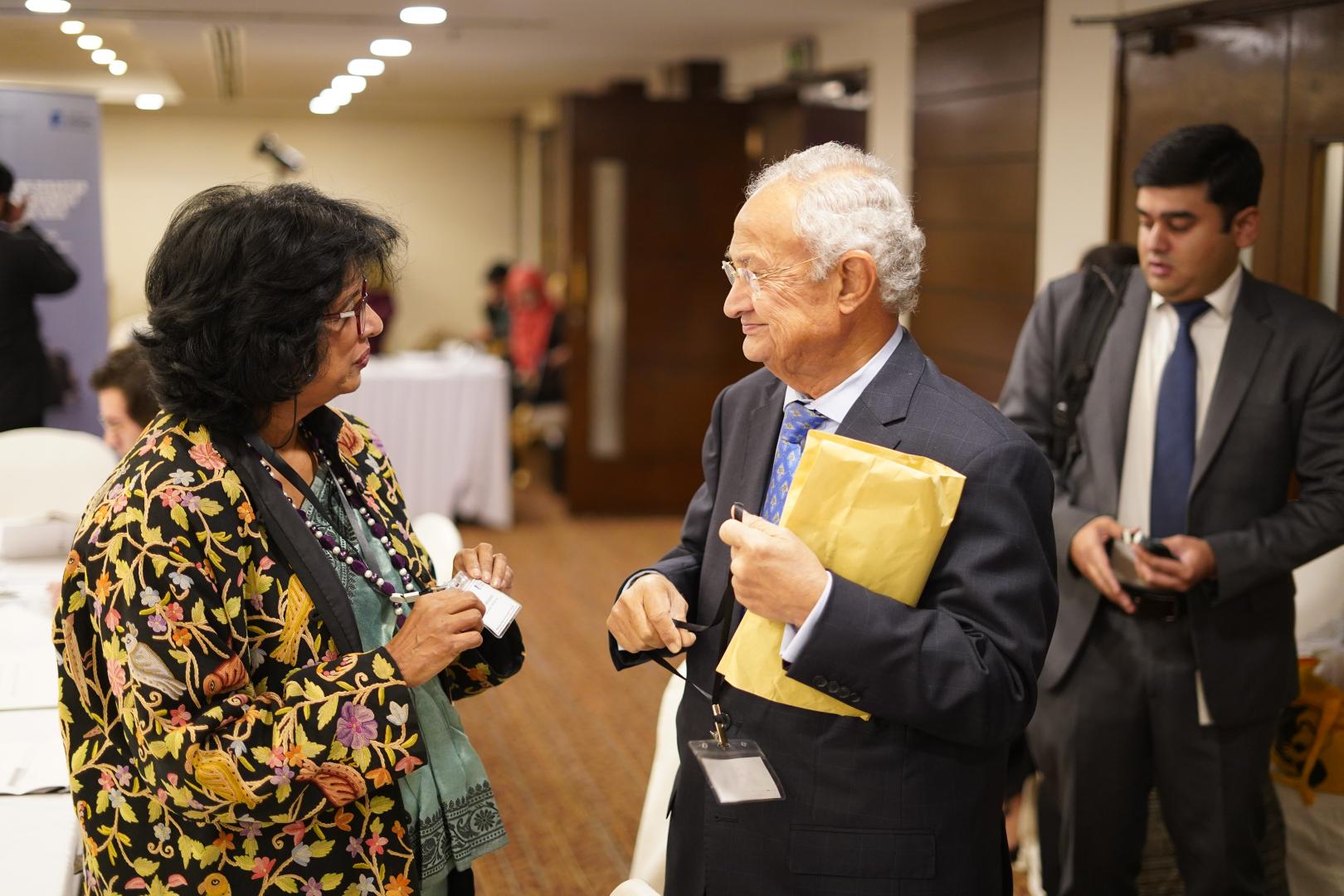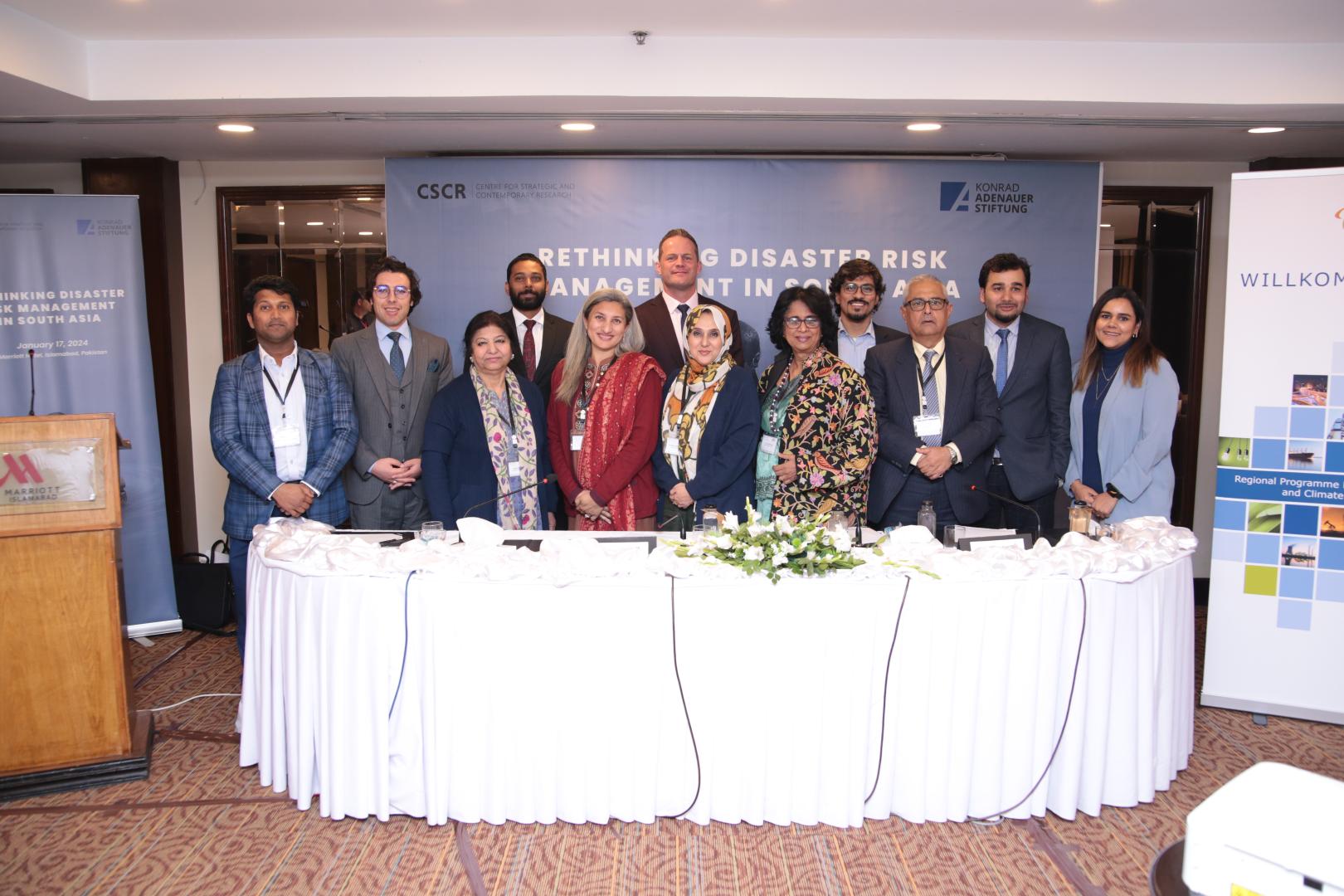Setting the stage for the discussion, KAS RECAP’s Director Dr Frederick Kliem emphasised the urgency of climate change mitigation and adaptation techniques to minimise its impact. As he highlighted, South Asia is among the most vulnerable regions to climate-induced disasters which underscores the need for proactive measures to address its consequences. Over the day, distinguished panellists representing diverse domains, including academia, government, civil society, and international organisations, engaged in insightful discussions across three thematic panels.
The first panel, titled ‘A Synergistic Approach to Disaster Risk Governance’, emphasised the need for robust national frameworks, enhanced coordination among government agencies, and improved resource allocation to address current limitations in disaster risk governance across South Asia. Syeda Ailiya Naqvi, Managing Editor and Director of CSCR, moderated the panel. Initiating the discussion on the theme, a Disaster Risk Management Specialist at the World Bank, Pakistan, highlighted the governance efficacy gap and underscored the absence of a resilient early warning and forecast system in Pakistan, which contributes significantly to the challenges encountered in averting such disasters. In subsequent presentations, the necessity of a shift from disaster risk management to disaster risk governance was emphasised, encompassing different viewpoints and aspects of disaster response. Speakers stressed the importance of incorporating a multi-disciplinary approach. On the other hand, based on examples from Sri Lanka’s strategy in disaster risk management, the necessity for a more people-centric approach to bridge the gap between policymaking and the actual implementation of the plan were underscored. Subsequently, the case of Bangladesh underlined that, among other South Asian countries, Bangladesh consistently faces natural disasters each year, making timely implementation of existing disaster resilience and management plans even more important.
The second panel was entitled ‘Reducing Disaster Risk – Sustainable National Practices’ and was moderated by Talha Ibrahim, Academics Director, CSCR. The panel presented successful indigenous and best practices from various South Asian countries, highlighting the potential for knowledge sharing and cross-border collaboration in areas such as flood protection, landslide prevention, and early warning systems. A particular focus was on local governments’ crucial role in disaster mitigation and the importance of implementing early warning systems to address hazards, emphasising the need for a collective obligation to tackle these challenges. National examples from, amongst others, Afghanistan and Nepal stressed the importance of local-level responses in villages and remote areas in mitigating disaster risks and showed the significance of traditional practices and local community-led responses to disasters in South Asia.
The roundtable's third panel facilitated discussions on ‘Entry Points for Regional Cooperation on Disaster Risk Management’. The importance of prioritised regional collaboration was accentuated, especially in information and data sharing and transboundary flood management, to effectively address disasters in South Asia.
The Rethinking Disaster Risk Management in South Asia roundtable demonstrated the crucial role of collaboration in fostering regional dialogue and action. South Asia is shaped by its inseparable regional connection between climate and geography, often resulting in massive spill-over effects of natural disasters. At the same time, political constraints in the region cause fragility and challenges which further impede regional collaboration. The event brought together diverse voices and expertise, paving the way for a more comprehensive and collaborative approach to disaster risk management in South Asia. The insightful discussions highlighted the urgency of addressing climate change, strengthening national governance frameworks, implementing sustainable practices, and fostering regional cooperation. By translating these insights into concrete action plans and policies, South Asia can build a more resilient future for its people and communities.
